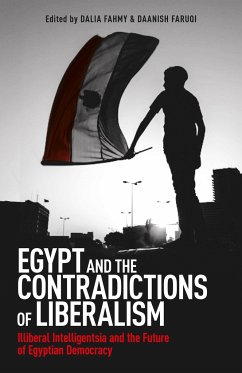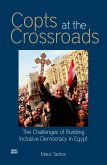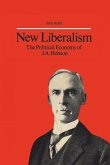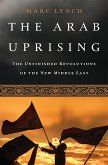The liberatory sentiment that stoked the Arab Spring and saw the ousting of long-time Egyptian dictator Hosni Mubarak seems a distant memory. Democratically elected president Mohammad Morsi lasted only a year before he was forced from power to be replaced by precisely the kind of authoritarianism protestors had been railing against in January 2011. Paradoxically, this turn of events was encouraged by the same liberal activists and intelligentsia who¿d pushed for progressive reform under Mubarak. This volume analyses how such a key contingent of Egyptian liberals came to develop outright illiberal tendencies. Interdisciplinary in scope, it brings together experts in Middle East studies, political science, philosophy, Islamic studies and law to address the failure of Egyptian liberalism in a holistic manner¿¿ from liberalism¿s relationship with the state, to its role in cultivating civil society, to the role of Islam and secularism in the cultivation of liberalism. A work of impeccable scholarly rigour, Egypt and the Contradictions of Liberalism¿reveals the contemporary ramifications of the state of liberalism in Egypt. ¿ Contents 1. Egyptian liberals, from revolution to counterrevolution Daanish Faruqi and Dalia F. Fahmy ¿ Section I: Liberalism and The Egyptian State 2. Egypt¿s structural illiberalism: How a weak party system undermines participatory politics Dalia F. Fahmy 3. Nasser¿s comrades and Sadat¿s brothers: Institutional legacies and the downfall of the Second Egyptian Republic Hesham Sallam 4. (De)liberalizing judicial independence in Egypt Sahar F. Aziz ¿ Section II: Liberalism and Egyptian Civil Society 5. The authoritarian state¿s power over civil society Ann M. Lesch 6. Myth or reality?: The discursive construction of the Muslim Brotherhood in Egypt Mohamad Elmasry 7. Student political activism in democratizing Egypt Abdel-Fattah Mady ¿ Section III: Islam, Secularism, and the State 8. Egypt¿s secularized intelligentsia and the guardians of truth Khaled Abou El Fadl 9. The truncated debate: Egyptian liberals, Islamists, and ideological statism Ahmed Abdel Meguid and Daanish Faruqi ¿ Section IV: Egyptian Liberals in Comparative Perspective Post-2013 10. Conflict and reconciliation: ¿Arab liberalism¿ in Syria and Egypt Emran El-Badawi 11. Egypt¿s new liberal crisis Joel Gordon 12. Egyptian liberals and their anti-democratic deceptions: A contemporary sad narrative Amr Hamzawy ¿ Conclusion: Does liberalism have a future in Egypt? Emad El-Din Shahin








